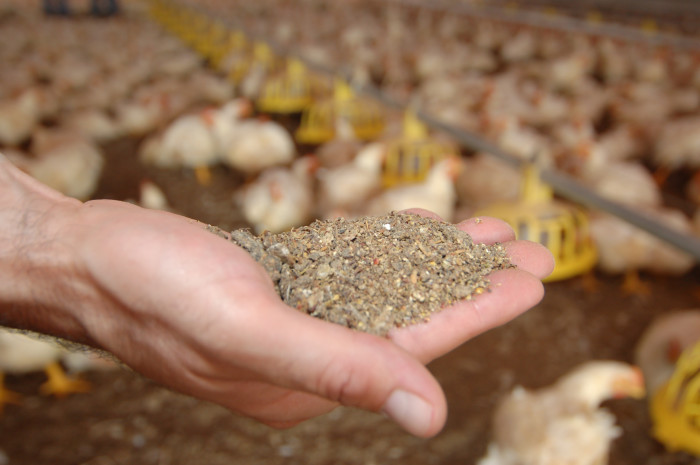DDGS linked to necrotic enteritis, higher FCR

Inclusion of dried distillers’ grain with solubles (DDGS) was linked to development of necrotic enteritis (NE) and had a negative effect on overall performance, investigators from Auburn University reported at the 2015 International Poultry Scientific Forum.1
In their study, researchers assigned 480 male broilers to receive either no DDGS or 15% DDGS in their starter and grower diets. On day 18 of age, they orally challenged birds with Eimeria maxima and E. acervulina since coccidia predisposes chickens to NE.
Then on days 21, 22 and 23 of age, they administered different doses of Clostridium perfringens, a pathogen that causes NE. On day 28 of age, the birds were scored for NE and coccidial lesions.
Birds that received 15% DDGS had higher feed-conversion ratios than non-DDGS birds that had received the same challenge dose of C. perfringens. They also had significantly higher (p < 0.05) NE lesion scores compared to birds receiving lower doses of C. perfringens, the researchers said.
The investigators did not note any significant differences among groups due to coccidia, they said.
1 Mackay Ll, et al. effects of feeding dried distillers grains with solubles to broilers challenged with C. perfringens and Eimeria on necrotic enteritis. 2015 international Poultry Scientific Forum abstracts.
Posted on September 28, 2015
 We’re glad you’re enjoying
We’re glad you’re enjoying










